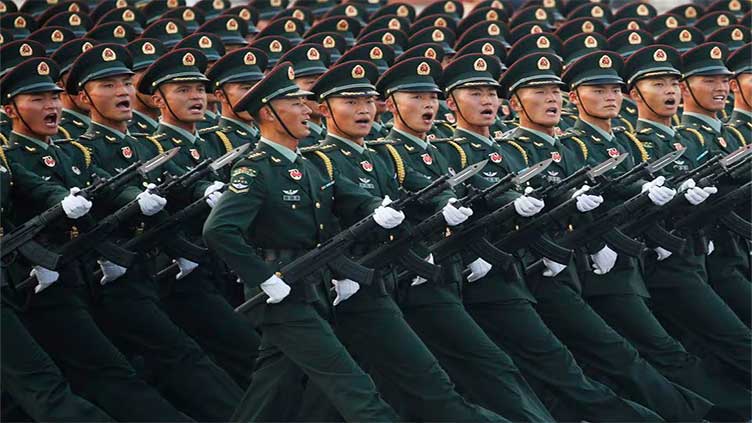China drops 'peaceful reunification' reference to Taiwan

World
Tensions have risen in recent years over Taiwan, democratically ruled island that China claims
BEIJING (Reuters) – China will boost its defence spending by 7.2% this year, fuelling a military budget that has more than doubled under Xi Jinping's decade-plus in office as Beijing hardens its stance on Taiwan, according to official reports on Tuesday.
The increase mirrors the rate presented in last year's budget and comes in above the government's economic growth forecast for this year.
China also officially adopted tougher language against Taiwan as it released the budget figures, dropping the mention of "peaceful reunification" in a government work report delivered by Premier Li Qiang at the opening of the National People's Congress (NPC), China's rubber-stamp parliament, on Tuesday.
Tensions have risen sharply in recent years over Taiwan, the democratically ruled island that China claims as its own.
Li Mingjiang, a defence scholar at the Rajaratnam School of International Studies in Singapore, said that despite a struggling Chinese economy, Taiwan is a major consideration for Beijing's defence spending.
"China is showing that in the coming decade it wants to grow its military to the point where it is prepared to win a war if it has no choice but to fight one," Li said.
Since Xi Jinping became president and commander-in-chief more than a decade ago, the defence budget has ballooned to 1.67 trillion yuan ($230.60 billion) this year from 720 billion yuan in 2013.
The percentage rise in military spending has consistently outpaced the annual domestic economic growth target during his time in office; this year the growth target for 2024 is about 5%, similar to last year's goal, according to the government work report.
The defence budget is closely watched by China's neighbours and the United States, who are wary of Beijing's strategic intentions and the development of its armed forces.
The purchase of new equipment is likely to take up the largest single chunk of the budget as the military works to meet Xi's goal of full modernisation by 2035, according to the London-based International Institute for Strategic Studies (IISS).
Based on IISS data, this year's budget marks the 30th consecutive year of Chinese defence spending increases.
In the government work report, China reiterated a call for "reunification" with Taiwan, but added emphasis that it wants to "be firm" in doing so and dropped the descriptor "peaceful", which had been used in previous reports.
Although it is not the first time that China had omitted the word "peaceful", the change in language is closely watched as a possible sign of more assertive stance towards Taiwan.
Taiwan's defence ministry and Mainland Affairs Council did not immediately respond to requests for comment. The island's defence minister had said on Tuesday Taiwan's armed forces would increase the number of missile drills they hold this year.
Wen-Ti Sung, a political scientist and nonresident fellow at the Atlantic Council, said that the language on Taiwan has "moderately hardened".
"Beijing appears to be balancing between projecting increased toughness on Taiwan with stabilising relations with Taiwan's international friends," he said.
After the Democratic Progressive Party's Lai Ching-te won the presidential election in Taiwan, the Chinese Communist Party's fourth-ranked leader, Wang Huning, said at a high-level Taiwan policy meeting last month that China would "resolutely combat" any efforts towards Taiwan independence this year. Previous years' statements from the annual meeting only vowed to "resolutely oppose" Taiwan independence.


